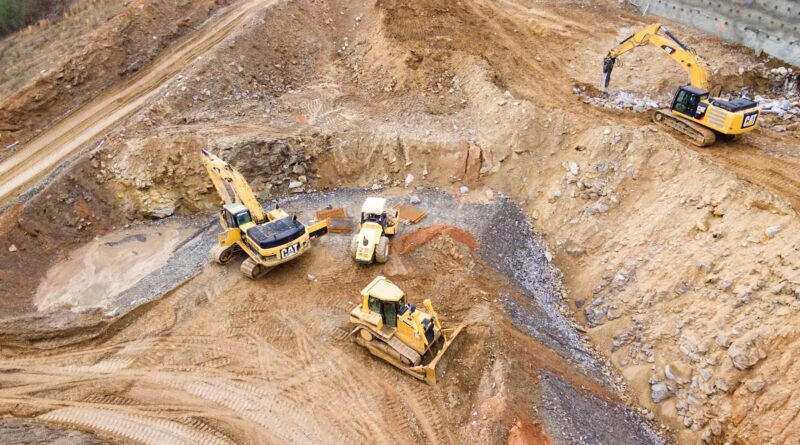Best Practices for Obtaining Construction Permits for Real Estate Projects
As a real estate investor, borrower, or lender, you know that real estate projects require a lot of planning, resources, and expertise to execute successfully. One critical aspect of the process is obtaining the necessary construction permits. However, the process of obtaining construction permits can be complex and time-consuming, with various requirements, codes, and regulations that you need to navigate.
In this article, we will discuss in detail the best practices for obtaining construction permits for real estate projects. We’ll provide you with the information and guidance you need to ensure your project’s success, avoid costly mistakes and delays, and help you navigate the complex permitting process.
1. Understand the Permitting Process and Timeline
Before starting any real estate project, it is crucial to understand the permit requirements and timeline. You should research the permit requirements and timelines of the local building department. You can visit the building department’s website, make a call, or visit their office. Different municipalities and cities have different requirements, and understanding these requirements is essential to avoid delays and unexpected costs.
The permitting process typically includes several steps, including plan review, permit application, inspection, and approval. It is vital to understand the timeline for each of these steps and the documentation required. In general, the permitting process can take several weeks to several months, depending on the project’s complexity and scope.
2. Hire a Qualified Architect or Engineer
Real estate projects can be complex, and they require the input of various professionals, including architects and engineers. Hiring a qualified architect or engineer is essential in obtaining construction permits. These professionals can help you prepare a detailed plan that meets the necessary requirements, codes, and regulations. They can also assist you in navigating the permit application process and answer any questions you may have.
A qualified architect or engineer should have a state license, a professional degree, and years of experience in real estate projects’ planning and execution. You should ensure that the architect or engineer you hire is qualified, experienced, and has a good reputation.
3. Prepare a Detailed and Accurate Permit Application
When submitting a permit application, it is essential to provide a detailed and accurate application. A permit application requires specific information, including site plans, building plans, and specifications. It is essential to provide all required information and documentation and ensure that they are accurate and complete.
Inaccurate or incomplete information can cause delays or result in your application being denied. Therefore, it is crucial to ensure that the permit application is well prepared, detailed, and accurate. This will help you avoid costly mistakes and delays in the permitting process.
4. Establish a Good Relationship with the Building Department
The building department officials are responsible for reviewing and approving permit applications. Therefore, it is crucial to establish a good relationship with them. A good relationship can make the permitting process smoother and faster.
When communicating with building officials, it is essential to be respectful and professional. Follow up on any requests or questions they may have promptly. By building a good relationship with building officials, you can make the permit application process less stressful and time-consuming.

5. Monitor the Permit Process Closely
The permitting process can be complex, and there may be unexpected changes or updates. Therefore, it is crucial to monitor the permit process closely. Keep track of any changes or updates to the application status, and follow up on any requests for additional information promptly.
By monitoring the permit process closely, you can help avoid delays and ensure that your project stays on track. You can communicate with the building department officials or the architect or engineer you hired to help ensure that everything is going smoothly. You can also consider hiring a permit expediter to help you with the monitoring process.
6. Consider Hiring a Permit Expediter
Permit expediters are professionals who specialize in obtaining permits quickly and efficiently. They can help you navigate the permit application process, answer any questions you may have, and ensure your project stays on track. While hiring a permit expediter may come at an additional cost, it can be worth it to help ensure your project’s success.
Permit expediters have years of experience in dealing with the local building department officials, and they know how to navigate the complex permitting process. They can also help you avoid delays and ensure that everything is going smoothly. However, before hiring a permit expediter, it is crucial to research and ensure that they are qualified, experienced, and have a good reputation.
7. Stay Up-to-Date on Building Codes and Regulations
Building codes and regulations are constantly changing, and it is essential to stay up-to-date on these changes. By staying up-to-date, you can ensure that your project is completed to code, avoid costly mistakes, and help ensure the safety of those who will be using the building.
One way to stay up-to-date is by visiting the local building department’s website regularly. You can also attend seminars or training sessions on building codes and regulations. It is essential to ensure that the architect or engineer you hire is also up-to-date on the latest building codes and regulations.
Final Words
Obtaining construction permits for real estate projects can be a complex and time-consuming process. However, by following these best practices, you can help ensure your project’s success while avoiding costly mistakes and delays.
Remember to understand the permit requirements and timeline, hire a qualified architect or engineer, prepare a detailed and accurate permit application, establish a good relationship with the building department, monitor the permit process closely, consider hiring a permit expediter, and stay up-to-date on building codes and regulations. By following these best practices, you can help ensure that your project is completed on time and within budget, making it a success.
Are you planning a real estate project that requires construction permits? Remember to follow these best practices to help ensure your project’s success. Do you have any additional tips or tricks for obtaining construction permits? Share them in the comments below!
